Angie Tsai, Gus Nosti, Matthew Hanks: NSW’s white collar criminals revealed
They may be professional and intelligent people but they are also experts at deceiving and manipulating. Here are NSW’s shocking white collar criminals.
Blacktown
Don't miss out on the headlines from Blacktown. Followed categories will be added to My News.
Everyone has a picture in their head of what a criminal looks like.
But every now and then a crook comes along and doesn’t quite fit the bill. They wear a suit, they are successful, motivated and often hardworking.
These crooks who deal in crimes such as bribery, fraud or money laundering are often referred to as ‘white collar criminals’.
University of Sydney Business School fraud and corporate governance academic director Professor Clinton Free said white-collar crime referred to nonviolent crimes such as bribery, insider trading and money laundering, with the most common offence being fraud.
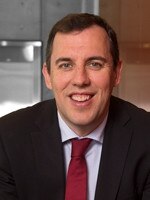
Mr Free said academics refer to the ‘fraud triangle’, which is a situation when a person requires an opportunity, a motivation and a rationalisation to commit fraud.
“The motives for white collar crime are typically framed around need and greed,” he said.
“I have interviewed hundreds of offenders in prison to try and better understand rationalisation, the moral justification that offenders provide in accounts of their offending and I think these ultimately fall into two buckets.
“The first is about diminishing the impact of their offending. This involves claims the victim did not actually suffer any substantial harm. This might even include characterising the crime as a temporary loan.
“The second is diminishing their agency by pointing to others. These rationalisations position the offender as a victim of others – who provoke, pressure or even compel the offender to act. Others who demand it, others who also do it, or others who deserve it.”
Professor Tony Ciro from Australian Catholic University’s Thomas More Law School said white collar crime was often closely linked with conventional crime.
“There is often a blur between white collar crime and conventional crime and the two often overlap because criminal conduct can go into the financial side quickly,” he said.
“A lot of white collar crime in Australia is perpetuated by organised criminal gangs that have conventional criminal activity and then need to engage in white collar crime to make their criminality look more respectable.”
Mr Ciro also said poor working conditions and, in some circumstances the allure of performance bonuses, can contribute to professional workers turning to white collar crime.

“There is evidence that sometimes organisations with a poor work culture can lead individuals to the type of activity that can potentially borderline criminal,” he said.
“So if something is incentivised, such as ‘you will end up with a bigger bonus if you make more profit for an organisation’, that then can lead itself to activity which can be criminal.”
Below are some NSW’s white collar criminals:
Angie Tsai
A Sydney Commonwealth Bank employee who took millions from customers was jailed for at least two years after a judge declared he could not be soft on white collar crime.
Angie Tsai admitted to Downing Centre District Court she siphoned money in order to fund a lavish lifestyle with her ex-boyfriend before being caught by internal investigators in 2019.

The 33-year-old woman pleaded guilty to dishonestly obtaining a financial advantage by deception.
The court heard she took $500,000 from a dead customer’s account in 2014 and took more than $2 million from another customer who was overseas in 2015.
Tsai was sentenced to three years and three months jail, with a non-parole period of two years.
She will be eligible for parole this December.
Simon Anquetil
The man behind one of Australia’s largest tax frauds, Simon Anquetil, was sentenced to at least five years in prison in 2020.
The court found he inflicted a “collective financial injury suffered by all Australians”.
Plutus Payroll’s founder Anquetil was one of dozens arrested in May 2017 over the siphoning of $105 million through sham payroll companies.
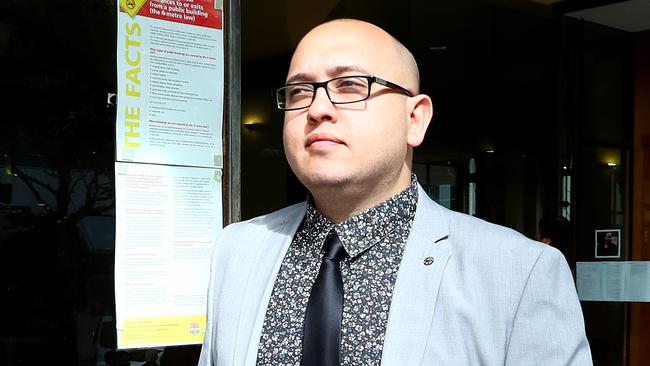
These funds were then used to fund lavish lifestyles, including homes, cars and an aircraft.
Anquetil netted around $12 million through the fraud scheme.
Justice Anthony Payne SC said the offences were committed out of greed and Anquetil “operated at the apex of the hierarchy”.
Anquetil pleaded guilty to conspiring to cause loss and dealing with the proceeds of crime and said he personally laundered more than $28 million.
He was sentenced to a maximum of seven and a half years in prison.
Anquetil will be eligible for parole in 2025, and considering his remorse and previous contributions to charities, Justice Payne was “cautiously optimistic” he wouldn’t reoffend.
Mark Leo O’Brien
A corrupt Sydney lawyer who misappropriated $6 million from charities to buy a Bondi mansion was jailed for a decade in 2021.
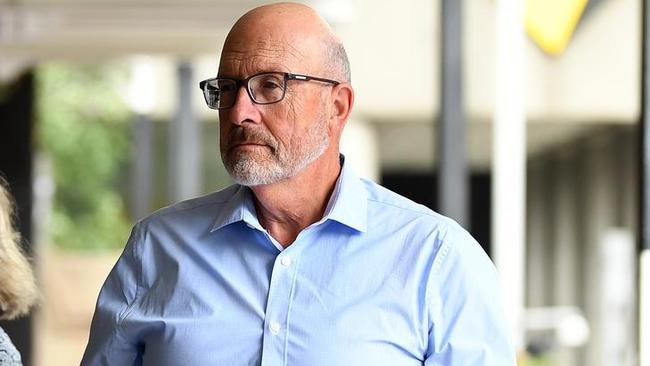
Mark Leo O’Brien pleaded guilty to 10 counts of dishonestly taking more than $6 million his dead clients had left to charity.
O’Brien’s wrongdoings unravelled when his law firm partner asked how the couple could afford a Bondi mansion given their prior home had sold for less than $1.5 million.
The misappropriated funds have since been repaid, the court heard, but about $500,000 in interest remains outstanding to the charities.
Judge Sutherland handed Mark Leo O’Brien a sentence of 10 years in prison with a non parole period of at least six years.
He will be eligible for release in 2027.
Luke Adamson
Northern beaches lawyer Luke Adamson defrauded clients out of $1.49 million and spent large amounts of money wining and dining colleagues.
The 56-year-old misappropriated funds from desperate clients at Manly and Parramatta practices over a number of years.
The clients included disabled people, the elderly and individuals serving time in prison.
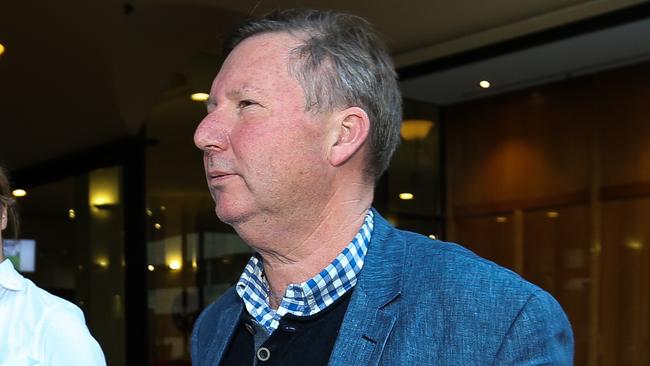
He removed the funds from their trust accounts for numerous years before complaints were lodged to the NSW Law Society in 2013.
Adamson told the court the expenses were not used to benefit him and he rather spent on effectively running his practice, regional law society events he organised, his children’s school fees and professional functions.
“I was a good lawyer but I was a terrible administrator,” he told the court.
He pleaded guilty to several counts of fraud and was jailed for a maximum of four years, with a two-year non-parole period and was ordered to pay back $198,000 compensation to one victim.
Matthew Hanks
Disgraced former Surf Life Saving NSW boss Matthew Hanks was jailed for cheating the charity out of almost $2 million.
The one-time general manager was sentenced to a maximum of three years and three months with a non-parole period of one year and seven months for his crimes.
Judge John Picking said that some aspects of the fraud had been “too easy” because of the slack management oversight and because Hanks was trusted by the upper echelons of the non-profit organisation.
He accepted Hanks was a “broken man” with no friends, no prospect of employment who suffered from depression and PTSD and had described himself as “immature and arrogant”.
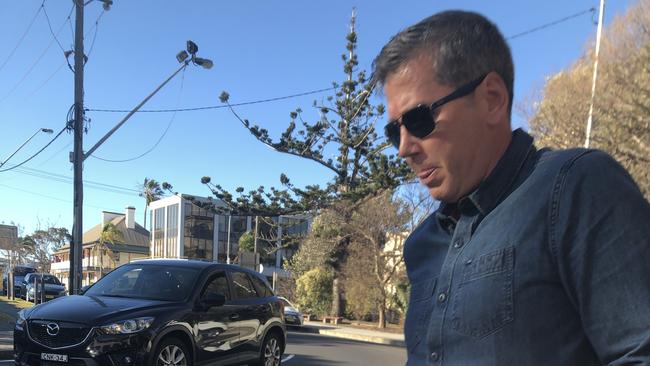
Hanks had done deals with car businesses to charge phantom dealer delivery fees on the charity’s vehicles, siphoning a total of $1,318,00 into his personal fund.
The judge said the morally worst fraud he committed was pocketing the $121,000 government grant meant for a surf club by altering the cheque.
That fraud was not discovered until SLS became suspicious and started to investigate the scams leading to Hanks resigning in 2016.
He almost immediately repaid $168,000 and then another $1.05 million after a civil judgment.
Graeme Walter Miller
A financial adviser who stole $1.8 million from his clients “lost his moral compass” shortly after his daughter committed suicide, a court heard.
Graeme Walter Miller, 60, was sentenced to six years in prison for his self-managed superfund Ponzi scheme.
Judge Gregory Woods also ordered he pay back more than $1.7 million to his victims.
Judge Woods called the scheme, which ran between 2013 and 2017, “a cruel and deceitful betrayal … leading to financial disaster”.
The victims were couples in their 60s and 70s who trusted Miller to invest their assets as they settled into retirement.
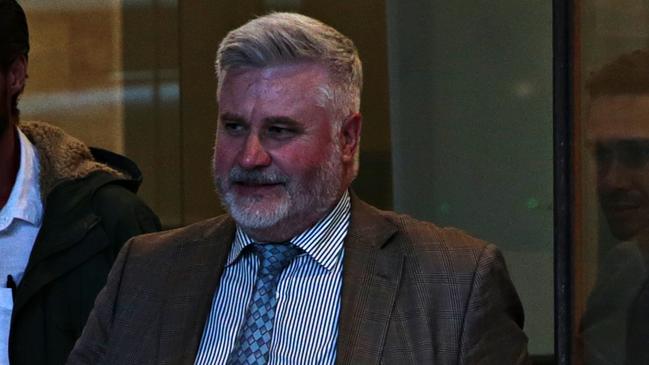
He misappropriated funds including $950,000, $380,000, and $250,000 from five couples, which they had worked for over decades, the court heard.
He then moved that money into his own accounts to pay for personal expenses and some of it back into the accounts of his clients to make it appear as though they were gaining good returns.
Miller pleaded guilty and was ordered to serve a minimum of four years in prison.
Augustine ‘Gus’ Nosti
A prestigious Sydney college financial manager felt like a “high roller” when he put most of the $7.4 million he stole from his employer through the pokies.
Augustine ‘Gus’ Nosti’s gambling benders and lavish holidays over 14 years finally caught up with him when he was sentenced by District Court Judge Karen Robinson to at least five and a half years in prison.
Nosti had been the financial manager for prestigious Sydney College Moriah College and had complete access to their finances.
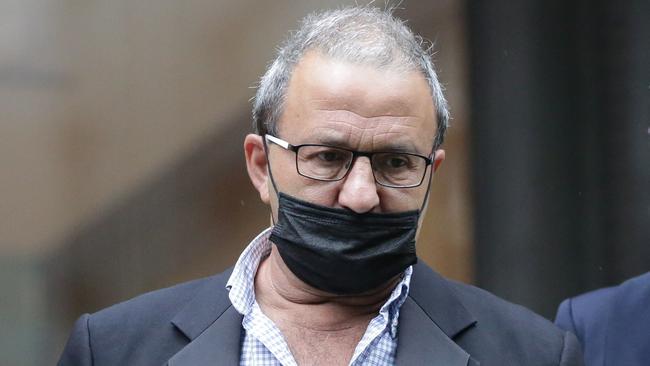
Nosti transferred $3.4 million to himself across 363 separate transactions from December 2004. While between August 2015 and his resignation in March 2019, he redirected 39 GST tax refunds — worth $3.9 million — away from the school of 1650 students to himself.
The 58-year-old will serve an aggregate term of nine years in prison and will be eligible to apply for parole on February 24, 2027, after pleading guilty to five offences of dishonestly obtaining a financial advantage by deception.





